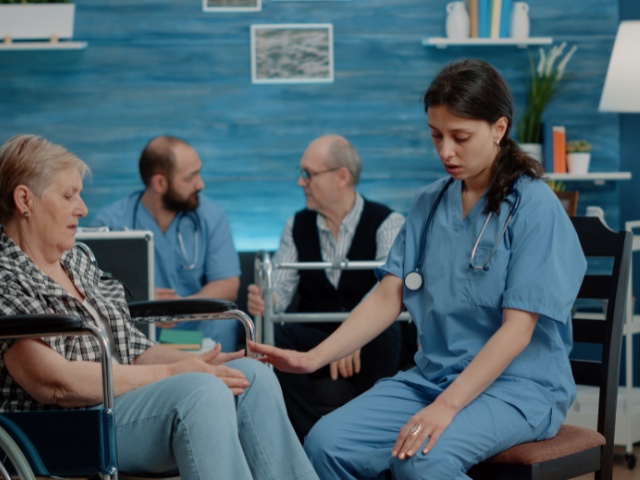Hospital Delirium Book Knowledge vs. Practical Application
I was about to experience the gap between book knowledge and practical application. I entered the hospital room of the previously kind and quiet Mr. S. He was literally hanging from the privacy curtain fighting with unseen enemies.
The staff nurses reported that Mr. S had been awake all night and required constant attention to keep him safe. At one point, they called security. The sight of a man in uniform made his agitation even worse. No one could get near Mr. S for care of any kind to evaluate contributing factors to his delirium.
This is a scenario that was beyond challenging. As usual with delirium, he had no sense of who he was, no memory of where he was, and no memory of his family. He was mentally isolated in his own world of fear. How awful it must have been for him. The staff nurses needed help. They had many other patients to care for and their best efforts to calm and care for him put them behind in their many tasks.
As I tried to reassure Mr. S that he was safe, unfortunately not very convincedly, our custodian Jim walked in the room. He didn’t seem to be anxious about Mr. S’s behavior. He acted like it was a usual occurrence for someone to be attempting to climb the privacy curtain. He nonchalantly pushed his broom while cheerfully greeting us both.
Mr. S was momentarily distracted from his climbing expedition. I asked Mr. S if he would like to take a walk, hoping that a change in environment would help his confusion. I asked Jim if he could take the time for a walk with us, feeling his calm presence would be added safety for both Mr. S and me.
We slowly walked the loop of the corridor. When Mr. S saw an exit door, he immediately headed for it. But Jim and I were able to distract him to another hallway feature. As we walked, I tried to tap into Mr. S’s long-term memory and all his senses with questions like, “Tell me about your house as a child,” and, “What is your favorite dessert?”
Finally, Mr. S’s aggressiveness peaked, and he pulled back his arm, formed a fist and told Jim, “I’m going to punch you.” In that split second, I thought, “Oh no, what have I done? I’ve put Jim in a terrible spot, and now he could be hurt.”
But then Jim had the most calming words that I will never forget. He gently said, “I’d rather you not.”
With that, Mr. S dropped his fist, and tears streamed down his face. He said, “I’m tired now.” We walked back to his room together, and Mr. S climbed into bed and finally, after being awake for days, fell asleep. After a good, long sleep, the nurses were able to provide the care he needed. His delirium completely resolved.
The unfortunate thing about delirium is patients often remember everything they said and did during their delirium. Mr. S remembered his behavior and was very apologetic. We reassured him that we understood his behavior was not within his control. He was discharged to home a few days later.









